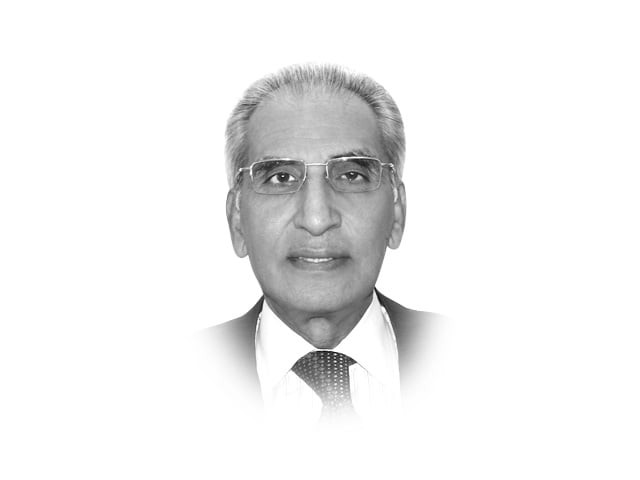Pakistan and the Afghan peace process
Both Islamabad and Kabul appear to be taking important, measured steps to bring their ties back on track.

The writer was Pakistan’s ambassador to the EU from 2001-2004 and to the US in 1999
tariq.fatemi@tribune.com.pk
Since the last quarter of 2012, Western diplomats have acknowledged detecting a tangible desire by Pakistan to work closely with both Washington and Kabul to promote the peace process in Afghanistan. Army chief General Ashfaq Parvez Kayani’s trip to Kabul in November 2012 to sign an agreement to improve border security and, thereafter, his joining former foreign minister Hina Rabbani Khar in the Brussels’ meeting in December to agree on joint counter-terrorism efforts in the region, were seen as a confirmation of this trend. This was followed by an understanding between Islamabad and Kabul on establishing a hotline between their respective military and intelligence wings for “structural interaction” and finally, facilitating talks with the Taliban via a Taliban office in Doha. These initiatives appeared to reinforce the impression that Islamabad and Washington were finally operating on the same wavelength and that Pakistan had succeeded in removing misgivings about its earlier attachment to the “strategic depth” concept as regards Afghanistan. Incidentally, this impression had been reinforced by Ambassador Richard Olson during his Senate confirmation hearing in August 2012, when he stated that “the Pakistani military and the Pakistani government have moved away” from the strategic depth doctrine.
Notwithstanding these seemingly reassuring developments, new wrinkles have emerged in Pak-Afghan relations, giving rise to renewed anxiety with regard to peace prospects in Afghanistan. Even though the mercurial Afghan president is known to engage in public tirades against both friends and enemies and his close associates, too, tend to go off on a handle, the recent eruption by Deputy Foreign Minister Jawed Ludin took observers by surprise. Accusing Pakistan of “shifting” its position on the peace talks and of “changing the goal posts”, he threatened to go it alone on the peace process without Pakistan’s assistance. Islamabad’s reaction to these accusations was calculatedly moderate and restrained. But a day later, another Afghan official charged that Pakistan was setting “pre-conditions” for backing the reconciliation process. Kabul also alleged that Pakistan was unilaterally constructing a border post, charging that “these activities are against accepted international norms and unacceptable to the Afghan government”.
General Kayani did seek to calm the disturbed waters during separate meetings last week with Nato chief General Joseph Dunford and with Centcom chief General Lloyd Austin by reiterating that Pakistan remained committed to working for the success of an “Afghan-led and Afghan-owned” peace process. There can, however, be no denying that recent events have raised fresh questions as to the post-2014 troop withdrawal scenarios in Afghanistan, in the absence of genuine cooperation between the neighbours.
While no specific reason has yet emerged to explain this unexpected setback, analysts believe that given the tortured history of Pak-Afghan relations, such twists should not be a surprise. Afghan President Hamid Karzai and his close associates continue to harbour lingering doubts about Pakistan’s intentions, while also remaining sceptical about its protestations of having abandoned its strategic objectives in Afghanistan. No less important are Karzai’s growing fears about his own future and his desperate need not to become irrelevant when his term ends in 2014. Notwithstanding the above, it is essential that Pakistan not weaken in its resolve to promote a genuine peace process, not as a favour to Afghanistan, but in its own supreme interest.
Published in The Express Tribune, April 10th, 2013.
















COMMENTS
Comments are moderated and generally will be posted if they are on-topic and not abusive.
For more information, please see our Comments FAQ